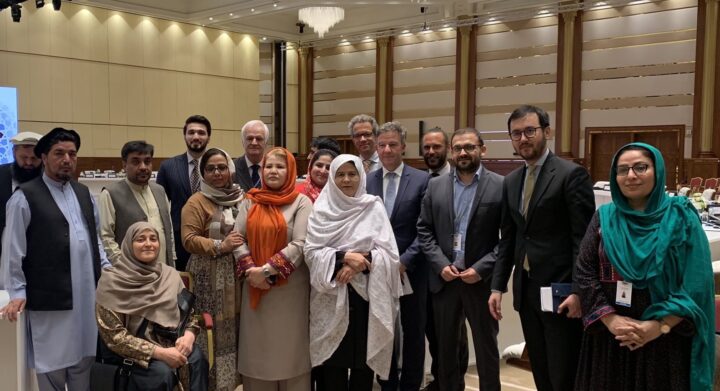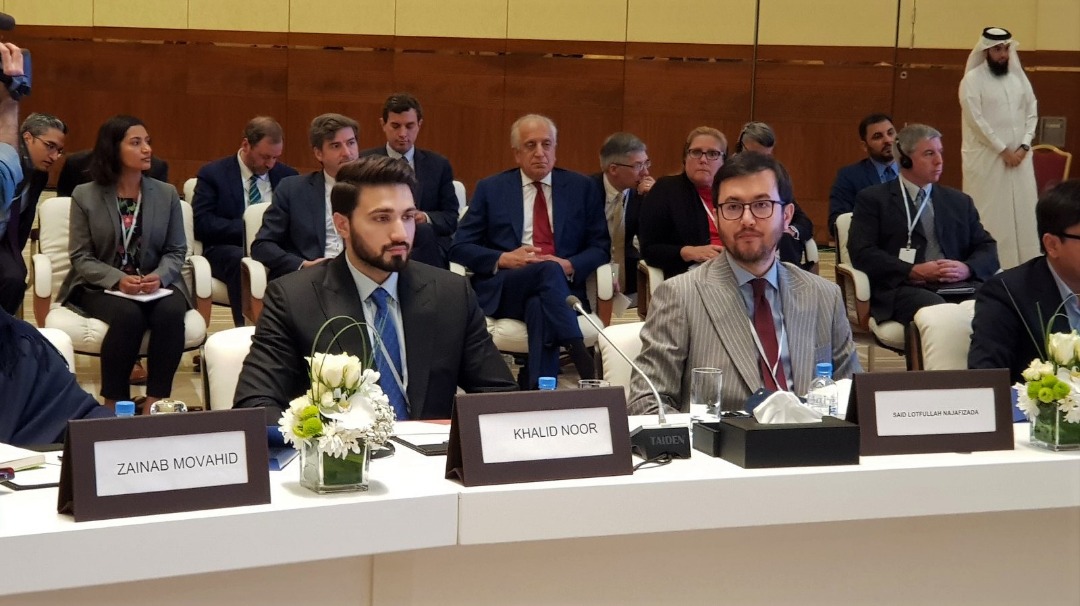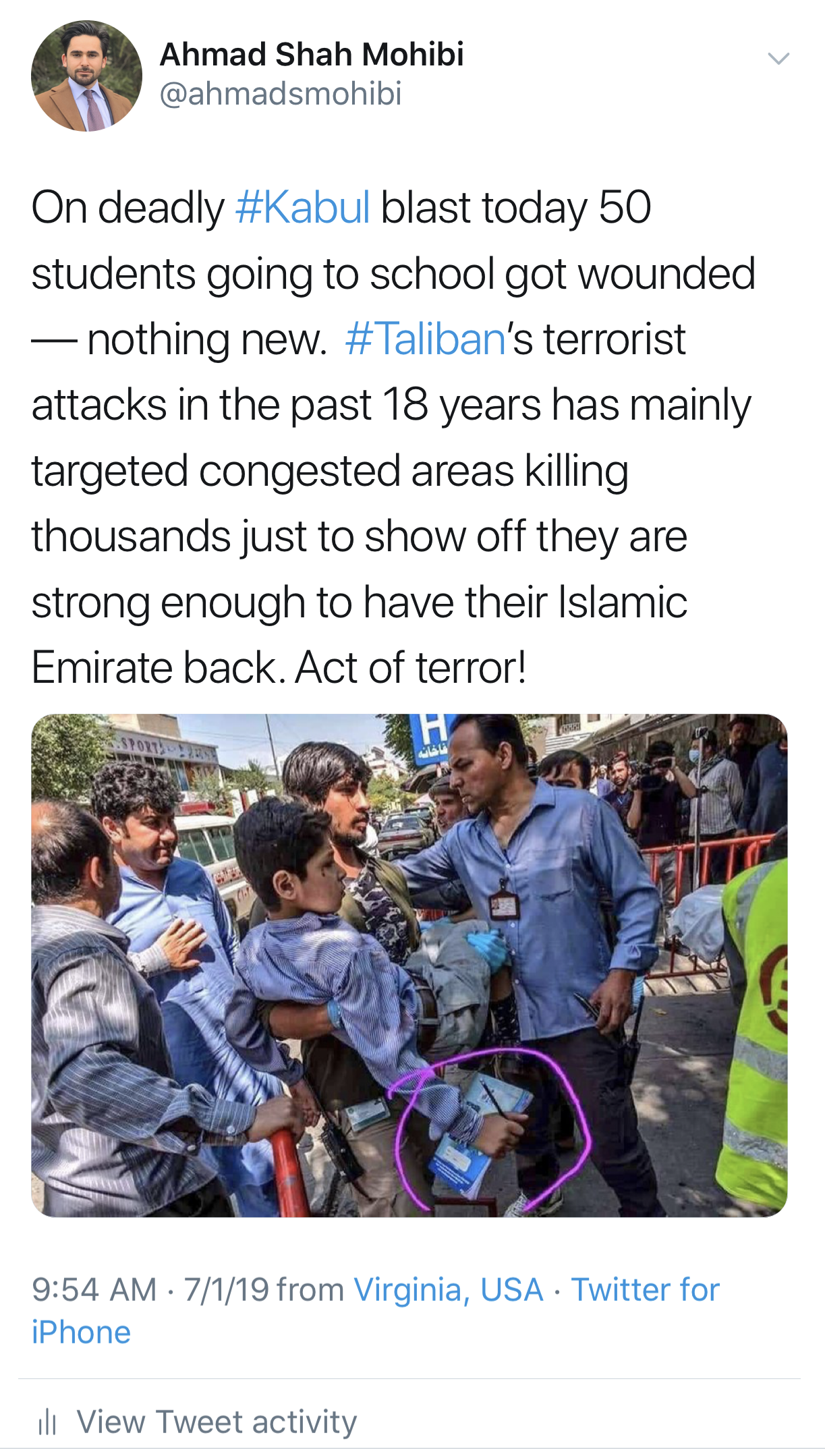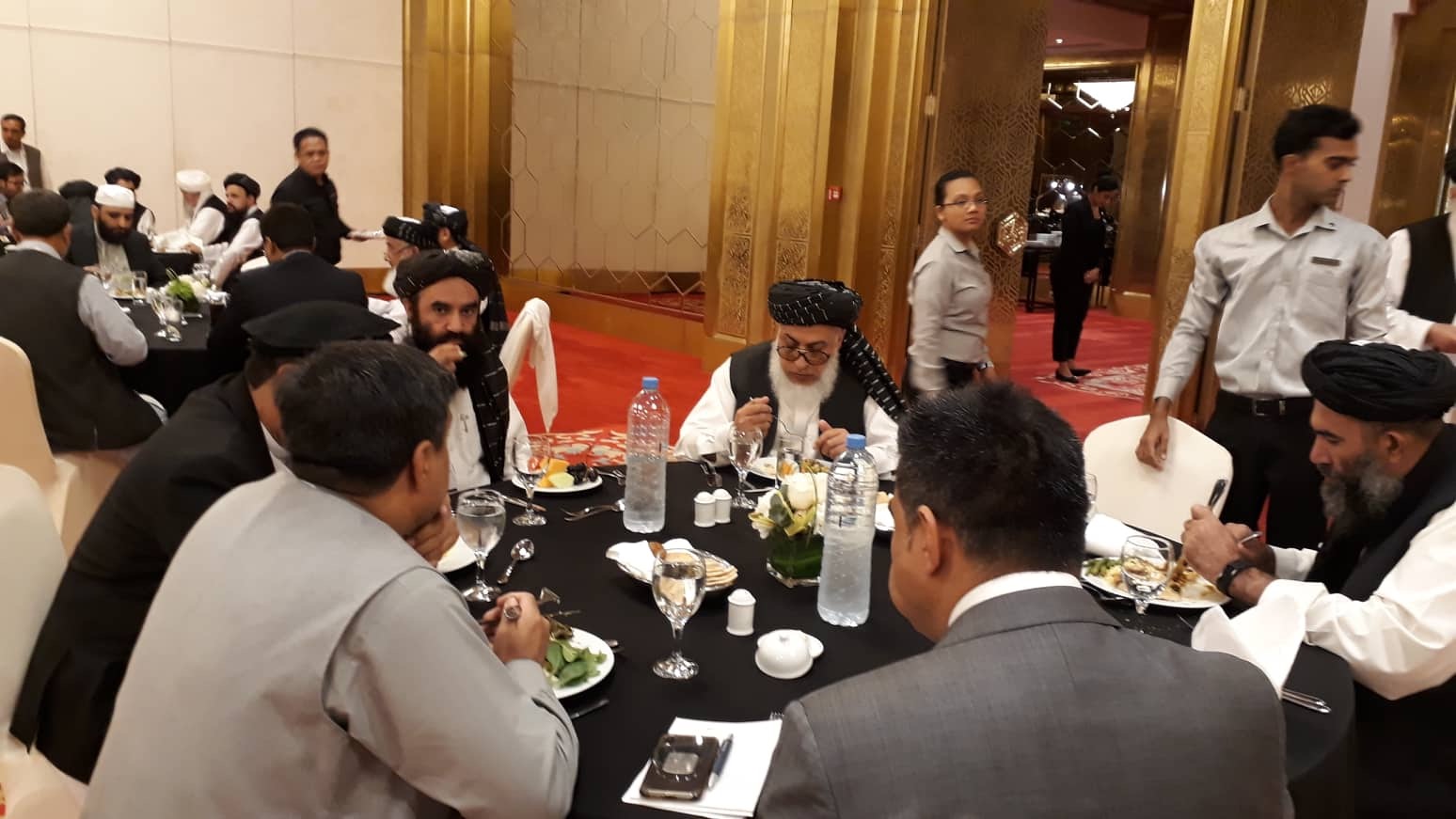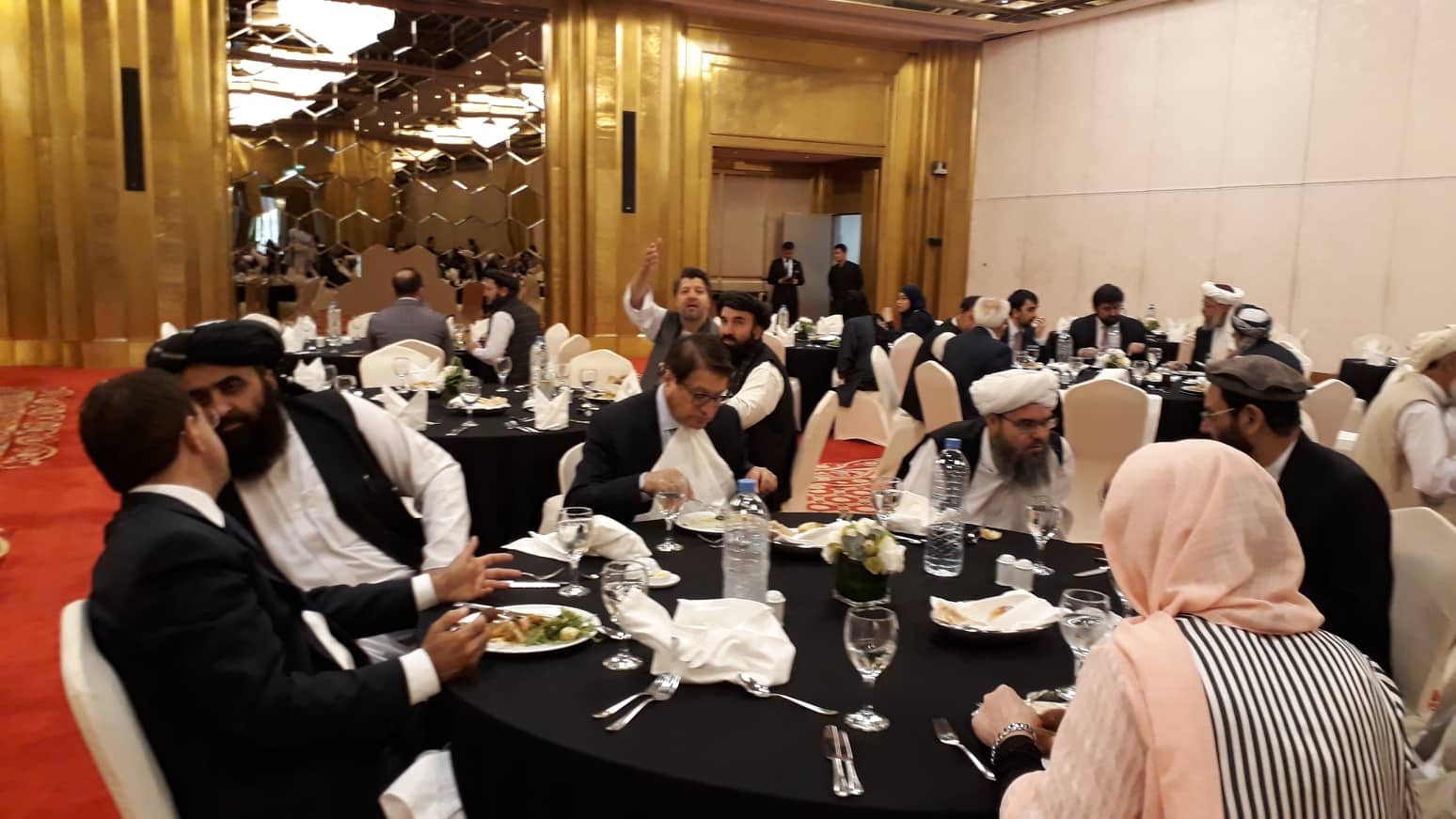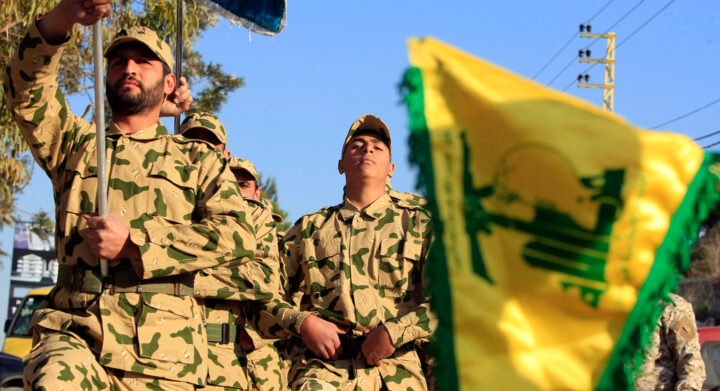A special field report by Rise to Peace.
Taliban makes 10 million Afghanis daily via drug trafficking in northern Afghanistan. For years, the Taliban continue to smuggle and traffick narcotics — such as heroin — along the Kukche River in the Darqid and Khawaja Bahawuddin districts of Takhar province.
This highly lucrative black market venture relies on two important branches. Armed smugglers transport heroin to the Dasht-e Qala district of Takhar, however, the Taliban facilitate the transnational nature of these particular shipments as they cross the border into Tajikistan.
As a result, the Taliban profits 10 million Afghanis ($127, 800 US) from this black market venture daily, excluding the shares diverted to drug traffickers and armed guards.
Heroin is not the only illicit product peddled by the Taliban. In coordination with narcotics traffickers and gunmen in the province, the Taliban import alcohol, and tablets known as “tablet K” (a synthetic drug with an unclear composition that acts as a stimulant) from Tajikistan. Many Afghans have died in recent years due to the use of such synthetic drugs and their intoxicating effects. Once narcotics such as these tablets are imported to Takhar, they are easily distributed across Afghanistan.
The Taliban control trafficking routes and cooperate with narco-traffickers based on mutually beneficial terms. The importation of alcoholic beverages (such as wine) and illegal drugs (such as tablet K) typically occurs in the north-eastern provinces of Afghanistan because they offer fewer impediments. Only a body of water — the large Kukche River — separates the borders between Afghanistan and Tajikistan.
Is the Afghan experience unique versus other drug hotspots?
Afghanistan is the top cultivator of opium globally and a major player in the heroin trade. Countries with similar narco-agricultural portfolios, such as Mexico and Colombia, reveal that the drug trade has certain similarities no matter a state’s location. Traffickers use violence and armed groups to ensure preferred corridors remain under their control. This often conflicts with the involvement of national security forces positioned to counter this broad human security threat.
Furthermore, like their foreign counterparts engaged in the narco-trade, the Taliban and Tajik drug lords rely on state instability and unstable socioeconomic factors to lure individuals — such as border guards, insecure infrastructure, government officials and those in poverty — to ensure the safe passage of their contraband goods. Transnational black market schemes typically ensure the largest profits.
How do officials conspire with the Taliban to garner profits?
Drug smugglers and some former government officials work together with the Taliban to smuggle Afghan heroin to the vast market of Central Asia through Tajikistan. A former Takhar governor, who does not wish to be named, stated the following to a Rise to Peace journalist: “the war beyond Takhar is a war between the mafia of power and the heroin war that the Taliban have been able to coordinate with unarmed Marines.”
Mullah Qadar — a top Taliban commander who is also a graduate of the Shariah department at Takhar University — told an unarmed man, who was later interviewed by Rise to Peace, that the Taliban’s leadership strongly controls the districts surrounding Kunduz province to ensure a continuous stream of income from drug trafficking and taxes imposed on the people.
Kunduz is a key province in northern Afghanistan that connects Kabul with Takhar and Badakhshan province. As it is a strategic point, the Taliban usurped control over the region from the Afghan government three times in the past 18 years
The Taliban taxes farmers in these areas under their influence to acquire funding for military operations to ensure their presence remains. According to Mullah Qadar, who worked as deputy governor of Takhar for a long time: “Taliban have various ways of income in Kunduz. When I was with them, we collected revenue from textiles, taxed farmers, and charged small fees for some businessmen selling their products or goods in an open market.”
Further insight into the northern Afghan-Tajik drug trade was offered by those interviewed.
Why did you import wine from Tajikistan when you know it’s unlawful and illegal?
We had a deal with the heroin traffickers. They gave us the goods, we transported them and made revenue to keep our resistance going. The export of heroin to Tajikistan and the import of alcohol and tablet K into Afghanistan generated the most revenue for us and the Taliban are still doing it.
How does the Taliban smuggle heroin to Tajikistan?
Taliban receives the product from Afghan drug traffickers and then coordinate with Tajik smugglers who are on the other side of the river. According to a smuggler: “Taliban have close coordination with Tajikistan’s border guards. After they get our heroin, they ship the stuff through small boats, or in most cases, via a localized water technique called Kema that has the ability to transfer drugs.
Karghan Tapeh, which is the capital of Khatlan province of Tajikistan, is the destination of these particular contraband materials. It acts as a transit point where alcohol and tablet K are loaded and transferred to the Taliban.
Tajikistan’s Ministry of Defense spokesman Fereidun Muhammad Aliev states that ‘more than ten’ Afghan smugglers are targeted along this route annually and their bodies are surrendered to Afghan authorities. Nonetheless, he continued that the prevention of further smuggling on this lucrative route is difficult given the Taliban’s presence in the shared forests and river areas between Afghanistan and Tajikistan.
A strong Taliban presence correlates to increased trafficking in the area.
Local authorities in Takhar also confirm that the majority of regional heroin smuggling occurs along this route with help from the Taliban. Afghan officials arrest numerous smugglers attempting to transport drugs via trucks or import heroin and wine in the districts each year. A border police officer told a Rise to Peace journalist, “the presence of the Taliban has made it difficult for us to stop the import and export of illegal stuff.”
After years of presence and major funding, the Taliban now have a bazaar (market) known as Omari Town in the districts of Darqid and Khawaja Bahawuddin. This market is unlike many others in Afghanistan because people can easily buy and sell arms, ammunition, drugs, and wine. They control more than a thousand shopkeepers. Afghan security forces have destroyed most of the shops in operation, but the market continues once they are gone.
The Taliban’s next move is to create a transnational market where Afghans and Tajiks cross the border to buy each others’ goods without getting visas as is common in northern Afghanistan. They would maximize their finances and control over surrounding districts under this scenario.
Like the Afghan-Tajik border, the Taliban continuously uses Afghanistan’s borders with Pakistan and Iran for clandestine purposes. For instance, the boundary with Pakistan is typically used to facilitate the transfer of guns, donations and foreign fighters. As a result of this, the United States’ government suspended aid to Islamabad over their harboring of terrorism.
The likelihood of the peace process is significantly reduced if the Taliban continues to fund its operations through illicit resources and narcotics while negotiating with the American and Afghan governments. It is vital to cut their finances (especially assistance from wealthy foreign donors) and block their drug trafficking routes. As long as drug trafficking remains profitable, the Taliban will continue to buy weapons, ammunition and pay fighters, which leads to a continuous cycle of war. Bankrolling the Taliban means they will not enter peace process negotiations in good faith.
Making peace at the macro-level is good, but it is imperative to pay closer attention to the sources of Taliban financing. This is important to stop the insurgency from gaining strength and subsequently challenging local governments.
It is apparent that these Taliban fighters engaged in the drug trade are self-serving bandits uninterested licit employment. Simply put, they do not care about the Islamic faith and manipulate the concept of jihad to suit their narrow personal interests. Their greater mission is accomplished as long as they make money and live in luxury.
A copy of this report was provided to the Afghan National Security Council and the local government in Takhar province. For full reports and inquiries, please contact Rise to Peace.






